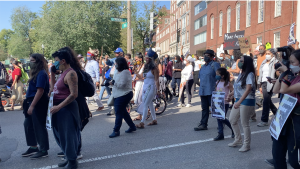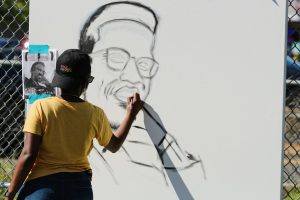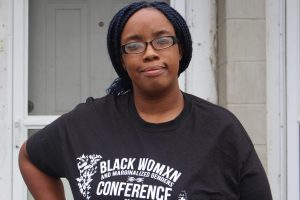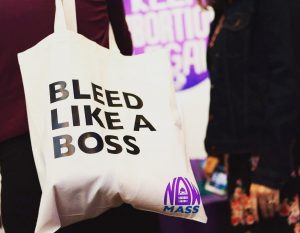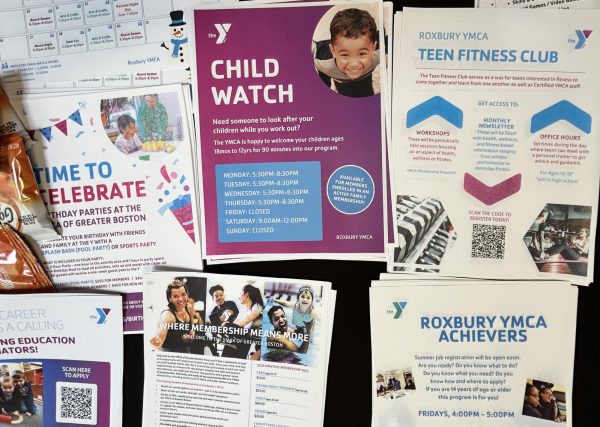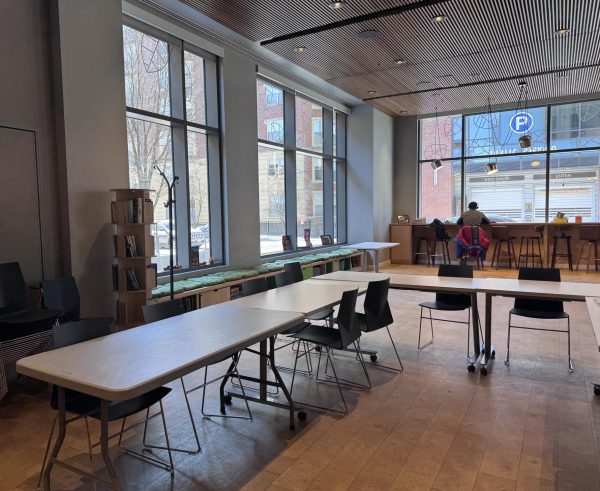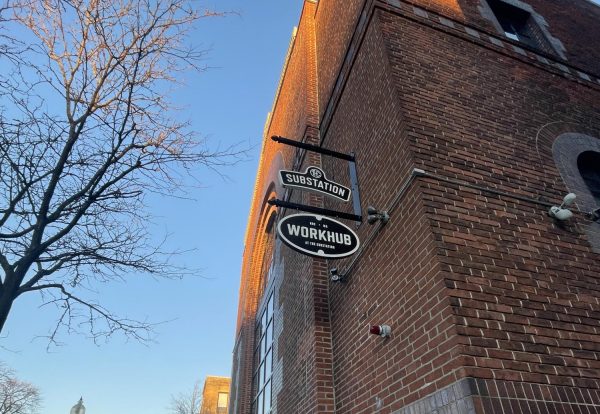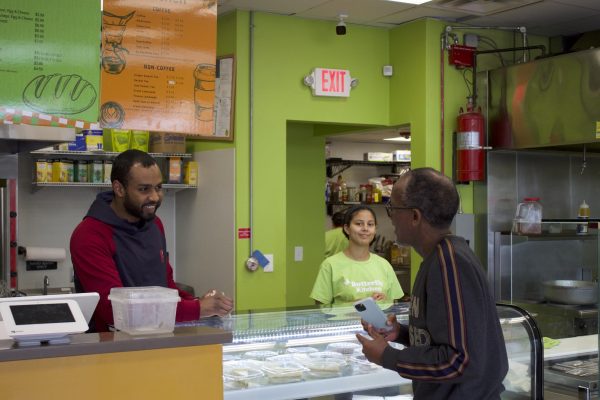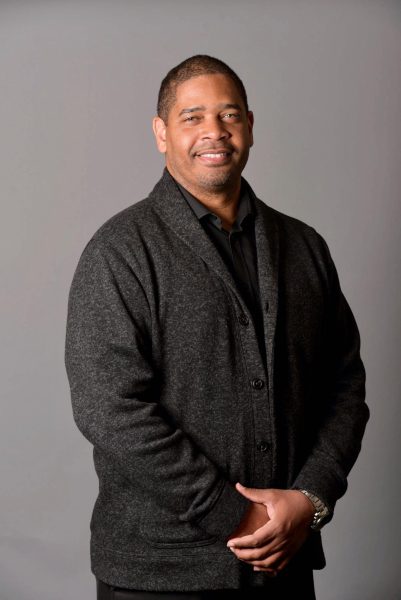Together is Better: The Freedom Fighters Coalition
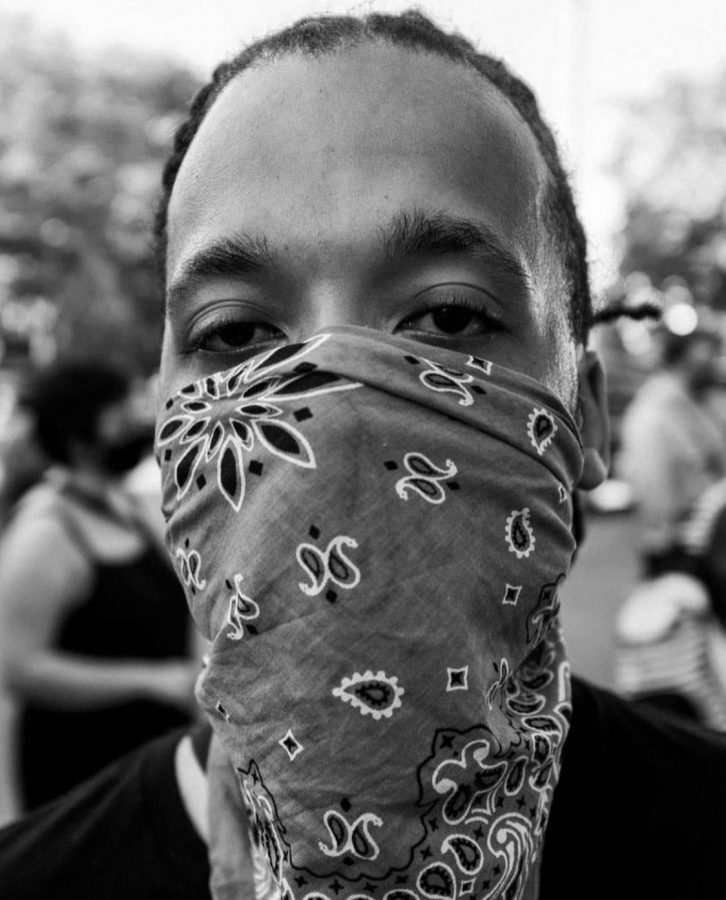
It was in the middle of a blistering July when Ernst Jean-Jacques, Noah Smith and Ariany Sanchez were sitting and making plans in Justice Edward O. Gourdin Veterans Memorial Park in Nubian Square. Smith, an engineering major at Purdue University, told the others that he wanted to do a unity march before going back to school. The march was to include all of the social action organizations, groups organizing activities directed toward institutional and socioeconomic changes, from around the city that the trio had been supporting all summer and to support the nation-wide response to unjust police killings, racial upheaval and devastating loss amid the COVID-19 pandemic.
Eleven days later, July 26, the trio introduced the Freedom Fighters Coalition to the city at its first social action event: the Boston Unity March. Since July, the coalition has been responsible for five significant social actions within the city, including the March for Breonna Taylor, Protect Black Women rally, two bike rides for change and an action the day after the presidential election to express their concerns about the state of the country.
The coalition, composed of people from multiple social action organizations around the city of Boston, in three months of its existence, has solidified itself as a community resource and leads the conversation of what can be done to ignite change in the city.
Though the coalition has no official leader, Ernst Jean-Jacques, 32, has risen to the unofficial position because of his intentional vocality and charismatic demeanor. Jean-Jacques, a support provider for disabled adults, went to his first protest on May 29. Bound by his love for community service, the Kappa Alpha Psi Fraternity member wanted to do more for his community.
“I don’t ever want to look back and be like, ‘You could have done more,’” Jean-Jacques, a Roxbury native, said. “I might look back one day and still be like you could have done more, but right now, I’m gonna try to do everything I can to inspire change.”
The Scope’s Lex Weaver spoke to Jean-Jacques in a phone conversation to learn more about the Freedom Fighters Coalition and hear about his passions and experiences as a visible organizer of color, in a city that can be unfriendly toward those fighting for equity and racial justice.
Parts of the interview have been edited for length and clarity.
Q: What is the mission of the Freedom Fighters Coalition, and what do you hope is the outcome of all the work?
A: Basically, the goal with the coalition is to unite as many different activists, community organizers, or even social action organizations, to unite all of them to get them on one unified front to combat racism, other forms of oppression and other social injustices. We feel that when everybody comes together, one message is stronger than 10 messages. We believe that instead of one group pushing one cause and one group pushing another cause, those two groups need to come together under one umbrella. We feel like if we have strength in numbers, then our message will be easier to get off to whoever we need to get it off to when we’ve got cooped up in a bunch of organizations versus doing it as one organization or an individual by yourself.
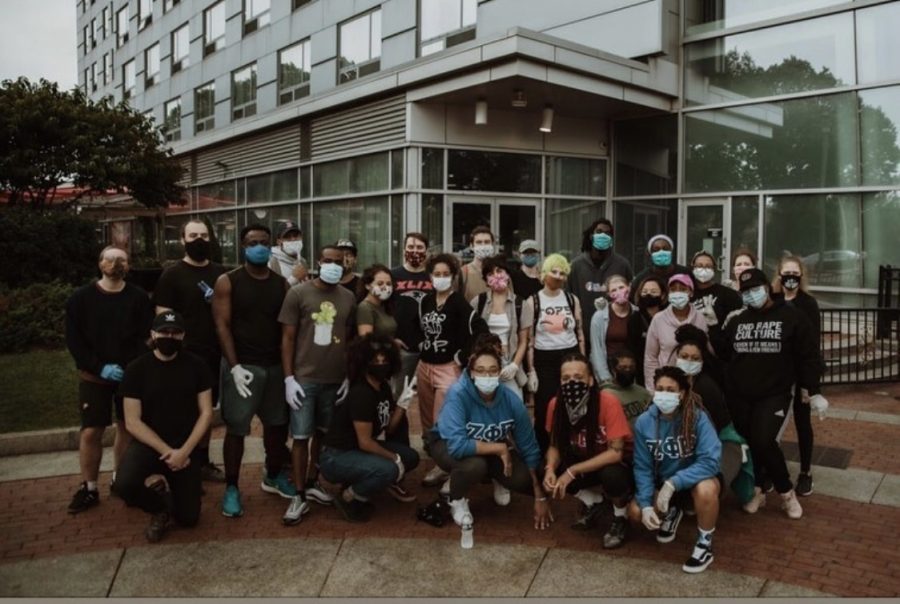
Q: That was going to be one of my questions because there are so many activists and organizing groups in the city, and a lot more popped up over the summer. So, I guess with that, it seems that there is a collective front. How do you then manage all of these groups and make sure that everyone is on the same page?
A: It’s not really about managing because all of these groups and all of these people are here of their own will. They’re all participating in these actions because they want to. The easiest way to go about it is to keep those lines of communication open and expressing how you feel about certain things. And then from there, depending on what you express, figuring out how you can find common ground between everybody involved in that particular conversation or action unity. Unity is the goal.
I feel like all of these organizations have a common goal. The common goal is to end oppression and social injustice against our people. That can come in so many different forms. It doesn’t necessarily have to be just police brutality, or it doesn’t necessarily have to be the fact that there are so many people that don’t have access to basic resources. There are so many different things that need to be focused on in order to end this oppression. I would say opening lines of communication and just checking your ego at the door.
Q: What have your conversations, if any, with law enforcement and elected officials looked like as you host these social actions in the city? Has anyone been responsive and reached out?
A: Yes, and no. We haven’t had any direct dialogue with politicians; however, a few politicians within the Greater Boston area have reached out either in person by showing up to these rallies and just basically commending us on putting together these actions. Still, we haven’t necessarily had conversations where we could ask specific questions about what they can do, if we decide to give them our vote, and what they can do with their power to try to help our cause, being the people who need help. I don’t know if that answered the question, but there has been Michelle Wu, Andrea Campbell and Chynah Tyler. Some of them have shown up in person to commend us. Commending us is fine, but it’s like, all right, you all are in public office or running for public office, and we’re just regular civilians. What do you plan on doing because the other side is us stressing ourselves and coming up with resources for the people? What are you all going to do for the people?
Q: With any form of social action, there will be naysayers or folks saying that it’s more harmful than good. What would you say are the conscious reasons for someone to go out and protest?
A: If Breonna Taylor, or George Floyd, or any of the countless victims of police brutality were part of your family, how would you feel? That’s the easiest answer. Taking it a step further, this is speaking for me as an individual and not for anybody in the group, but I don’t feel like anybody would disagree with me but, I feel like I have a moral obligation to go out and to speak up against things that are wrong, and that is unjust. If I weren’t able to speak up for myself, I would hope somebody would attempt to speak up for me. The naysayers, I’m assuming they watch the news, and the news probably put up the two-second clip of a crazy scenario without giving the full context.
I would tell these people to stay attached to social media because you can see everything that the media doesn’t show you on social media. You’re able to see us when we’re out at 10 a.m., passing out food to people who don’t have access to food when the city’s supposed to be doing that; or we’re cleaning up communities that we don’t even live in, but we have access to these communities, we know people that live in these communities, and we believe in these communities. We want to do everything that we can to help, when in fact, there are city people that get paid to do that.
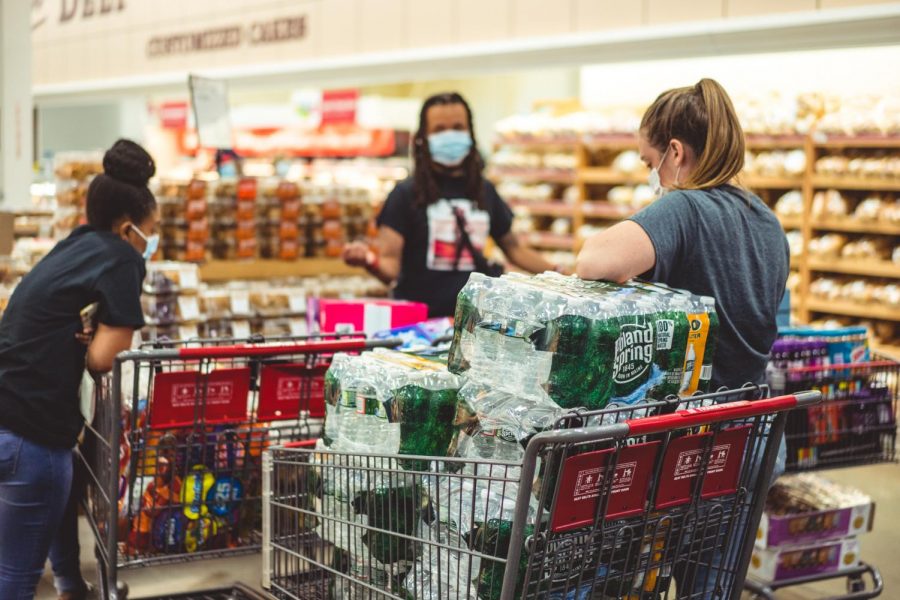
If you don’t want to go outside and protest, for whatever reason, that’s fine. Hold your family, your friends, your neighbors and your co-workers accountable. Find the organizers or organizations doing this work and figure out how you can help them from a remote location. Donate if you can. If you can, share a flyer of somebody who is selling something. There are so many ways you can help without directly being involved, and that’s just the number one thing I think I need people to take away. There are so many different ways to help, and it doesn’t necessarily mean that you have to go outside to protest.
Q: You all are not yet a nonprofit, and organizing can be costly. How are you all going about funding?
A: When I tell you that I’ve never felt more a part of a community than I do now, and I am 32 years old. The people that I have met in the last six months, whether they be at protests or rallies or community service events, I’ve never felt more a part of a community than right now. I can put out [online] that ‘We need this for X, Y, Z,’ and that’s just me asking somebody where I can go to get it myself. Not only will the community tell me where to get it, but they’ll also tell me a confirmation number and be like, ‘Yo, it’s on the way.’
That’s amazing, right now, that during a pandemic, during the second wave of the second coming of the civil rights movement, that such strangers will bend their back and break to try and help out another stranger [who is trying to] try to help out another stranger.
Q: We’ve been talking a lot about the incredible work the coalition has been doing in the city. Since many outside of the coalition view you as its leader, I want to pivot over to you for a bit. I don’t know your background, but I would assume you to be a Black man. Please correct me if I am wrong. Can you talk to me about the feeling you have had the past six months or so as a Black man in America?
A: I’m mixed. My mother is white, and my father is Black, but, with my appearance, it is okay for you to make that assumption. So, I will answer the question because, on average, when people see me that’s what they assume I would be. The last six months have probably been one of the most stressful but empowering periods of my life, to answer your question. At a given moment, it hasn’t always been exciting. There are some days where I’m like, ‘Do I even want to keep doing this?’ But, then I’ll go home, and a John Lewis documentary will come on or any of the civil rights activists from back in the day will pop up. Then I’m like, ‘Damn, I haven’t done anything in the last six months compared to these people.’ So, I have to keep going.
I can’t quit, can’t give up. I can’t feel defeated; Even though there have been several times in the last six months I felt defeated. It’s not easy. It’s not always fun. Most of the time, when people see me, I’m joking around or always trying to keep the mood light, but it’s very different when I go home and process everything that happened that day. It’s stressful. It’s messing up my mind because I have a 9 to 5. I’m going to work, and just 12 hours ago, I was leading a between three to 7,000-person protest; It’s just like, there’s no time for balance. But this is something that I decided to put on myself. I am grateful for everybody in the coalition, all of the freedom fighters, because I would not be able to get any of this done without them.
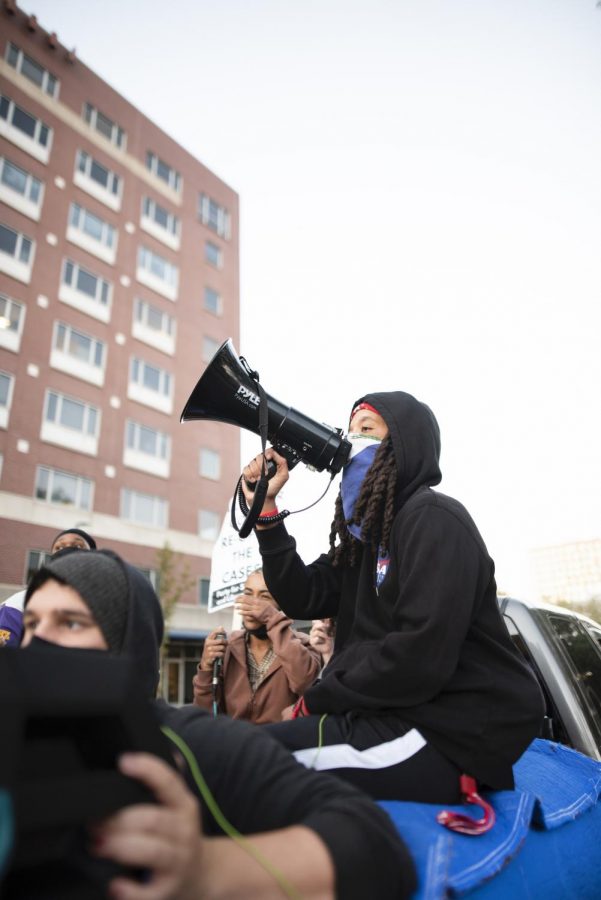
I know that I’ve probably molded myself into the face because I am one of the more outspoken individuals in the group, and I’ve been around the longest. Everything that’s done within [the Freedom Fighters Coalition], everyone has a say. If somebody feels some type of way about something, we don’t shut off their feelings. We’ll stop, and we’ll figure out exactly how they’re feeling, where we can meet in the middle ground, and how we can continue moving forward.
This coalition will not succeed without everybody being 100% all hands on deck. And that’s the beautiful thing about this coalition, which separates us from all these other groups. We are built with individuals and people that come from those other groups. I don’t even like to call this coalition anymore. I like to call it a family because we’ve only been around for three months, but some of the relationships and scenarios I’ve been in with some of these people, it’s like, even if we would even if we were to stop tomorrow, these people, I will never forget in my life.
Q: Is there anything you would like for people to know about the coalition that I haven’t asked you already or haven’t already addressed?
A: Well, to be a freedom fighter, you don’t have to be Black. To be a freedom fighter, you don’t have to live for protests. To be a freedom fighter, you don’t have to be angry. To be a freedom fighter, you don’t even have to be located in Boston. You can be a freedom fighter, wherever you’re at. You can be a freedom fighter, regardless of what you look like. You can be a freedom fighter regardless of what you believe in. But the one thing you have to have is you have to have a passion to try to attempt to inspire change against a system. And when I say a system, I mean the government, the police and anybody who has ever shown any form of racism. You have an obligation to do whatever you can to stop that.
I would just ask people, ‘How would you feel if your family member was a victim of police brutality? How would you feel if someone in your family didn’t have access to certain resources?’ I’m just trying to avoid all the stereotypes, and not even about the Freedom Fighters, but just the whole Black Lives Matter movement, in general. It’s not about the corporation. It’s not about how much money is raised. It’s not about how much money that a corporation donated to a business or institution. It’s the fact that, in 2020, we literally have to beg and plead and fight to not be treated like an animal. And we’ve got to fight to be treated equally. And we’ve got to fight for a seat at the table.
The goal is to reignite this fight against racism, and however we reignite your fight, I’m fine with that. I need people to know you don’t have to be Black, you don’t have to be angry, and you don’t have to be located in an inner-city to be a freedom fighter. If anything, I ask the white folks who live in the suburbs; Now is your time to shine and hold your family members, co-workers and everybody accountable. Straight like that. I’m not telling you to believe everything that I believe, but at the end of the day, as humans, we should be able to differentiate the difference between right and wrong. And 2020, the entire year, has been all wrong. So, I’m glad we were able to do what we’ve done in the last three months. Turn frowns upside down. Inspire people. Because, again, without people, I would have never been inspired.


